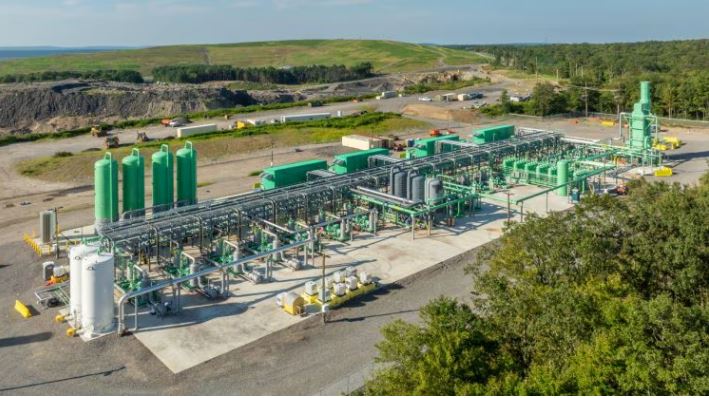
A new renewable natural gas (RNG) plant in Hegins, Pa., is up and running, according to joint venture partners Archaea Energy and UGI Energy Services LLC.
“Pennsylvania is a critical state for Archaea and it is playing a pivotal role in the energy transition,” Archaea Energy CEO Starlee Sykes said. “The state’s robust infrastructure and commitment to sustainable development make it an ideal location for advancing RNG technologies.”
Sykes said the facility is the third RNG plant that Archaea has brought online in the Keystone State. “We look forward to opportunities for further development,” she said.
The companies formed the Aurum Renewables joint venture to develop and own the RNG plant, which is adjacent to the Commonwealth Environmental Systems landfill in Schuylkill County, Pa. The plant came online in September.
Archaea, a subsidiary of bp, built and operates the Aurum Renewables plant, which uses the Archaea Modular Design (AMD). RNG plants traditionally have been custom-built, but the AMD allows plants to be built on skids with interchangeable components.
Using a standardized modular design can lead to faster builds than previous industry standards, according to the company, which said the plant will convert landfill gas — a natural byproduct of the decomposition of waste collected from the Commonwealth Environmental Systems landfill — into RNG, according to Archaea.
“We are pleased to see Aurum Renewables come online as this facility will provide communities with valuable use for landfill gas,” said Joseph Hartz, President of UGI Energy Services, a subsidiary of UGI Corp.
“UGI is investing in differentiated and innovative energy solutions, which includes RNG,” Hartz added. “With the help of our partners, we are creating low-carbon energy for Pennsylvania while helping our customers achieve their own sustainability goals.”
The Aurum Renewables plant can process up to 9,600 standard cubic feet of landfill gas per minute into RNG — enough gas to heat more than 39,000 homes annually, according to the U.S. Environmental Protection Agency.